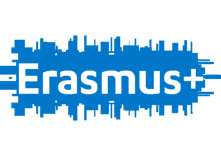Over the most recent two decades we have seen a nonstop change the worldwide economy, which is so promoted and quickly changed by the Web. In the piece of our reality that is characterized as being “modern” there has been a visible move towards a post-mechanical model of business, where work in general and routine office work are outsourced or computerized by robots and programming.
In the same time, globalization and the industrial development enable individuals to expand selfemployability,making their own particular openings for the work field, trying out innovative approaches using digitalization, getting inventive expanding their innovation and creativity and, as an outcome, bringing an added value for all individuals. In this frame, the integration of young people on labor market is a real challenge.
The educational systems should make students understand that at the end of their studies they should be able to reply to the question “What am I able to do?”
The general notes of the European Labour Force Survey show that 65% of today’s students will be employed in jobs that have yet to be created. This means that most of the currently employed workers should consider what they will do for making a living 10 or 20 years from now. Rapid technological changes have eradicated many jobs (iceman, milkman, typist, telegraph operator, etc.), this shows the necessity to develop new skills of the individuals.
Project partners were reunited according to the common needs faced in their schools: students face difficulties in identifying job opportunities consistent with their VET profile, the lack of career opportunities, students’ inadaptability in meeting the requirements of the job market, and the need to bring the today’s realities into the classroom.
The overall education process has a daunting task ahead: to teach students the 21st century skills, meaning to develop skills to face, adapt and solve problems that are not known yet and which will be visible in some years. The key point is to shift from acquiring knowledge to using it. It is high time for schools to develop their approach adapting to the latest trends in job-related skills and to offer the necessary support to students in considering their career prospects and developing their selfemployability,according to their personalities and competencies.
We have designed this project as an attempt to support the Europe 2020 for promoting an inclusive growth in order to strengthen the EU economy. The project will facilitate students’ understanding about key skills and innovation, while the activities will help them develop traits that will give them a distinct advantage when entering the workforce. These skill sets are needed for achieving success in the Innovation Age are not as clear-cut as they used to be in the Information Age, we will focus on boosting their ability to handle ambiguity and adaptability.

